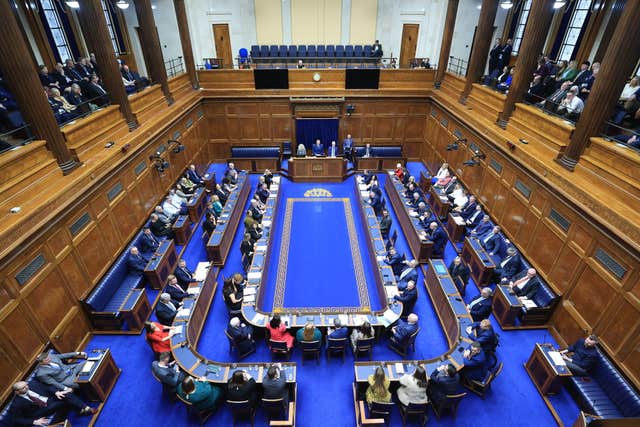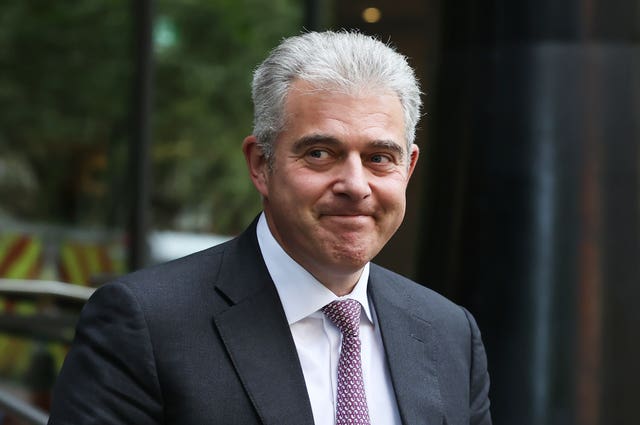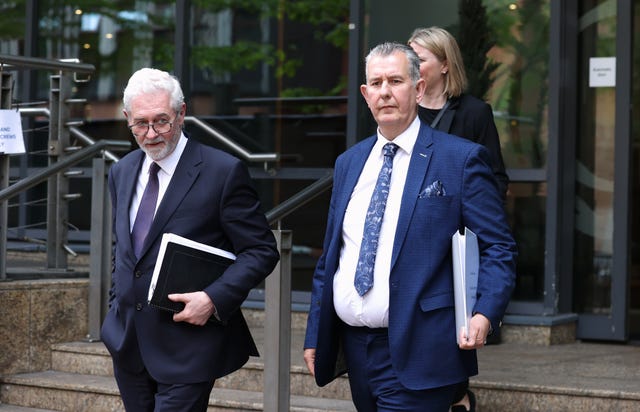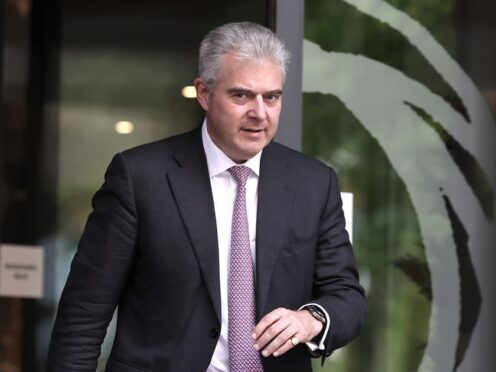Former secretary of state Sir Brandon Lewis was advised in late 2020 that the reintroduction of direct rule in Northern Ireland was the “only option” to intervene if Stormont ministers could not agree over Covid measures.
The advice came during a tense period within the executive as ministers discussed whether to extend lockdown measures amid concerns over rising numbers of infections.
There was a series of executive meetings across four days in early November as ministers struggled to reach agreement.

Amid this, Sir Brandon was advised his powers to intervene were limited and that direct rule was the only option.
Northern Ireland has not been governed by direct rule from London since 2007.
A briefing document was published on the UK Covid-19 Inquiry website on Thursday evening titled Legal Situation If NI Executive Cannot Decide On Replacement Regulations, dated November 11 2020.
It came during the second week of the inquiry’s three weeks of sittings in Belfast after Sir Brandon gave evidence during which he had concerns the recently re-established devolved government could collapse in autumn 2020.
The document said the circuit breaker regulations were due to expire on December 13, adding it was “unclear” if the executive “view this as a hard deadline”.
It advised that the UK Government’s powers to intervene on health policy that applies in Northern Ireland “are extremely limited”.
“The UK devolution settlement devolves power over health to the devolved institutions in Northern Ireland. The Secretary of State does not, therefore, have the power to intervene where he considers that an Executive decision, or failure to take a decision, carried negative consequences for Northern Ireland,” it read.
“All decisions to intervene, particularly where institutions continue to function would result in calls for the UK Government to intervene in other areas where there is stalemate in the institutions.

“Ordinarily, therefore, the only course open to the Government wishing to intervene would be through primary legislation to introduce direct rule.
“Direct rule in the past has given the Secretary of State power to do anything that a Northern Ireland minister could do, and so applies across all devolved policy areas.”
The briefing note went on to say it had previously been considered whether direct rule could be introduced in a specific and limited way in the context of a possible no-deal Brexit in the absence of an executive.
“A limited form of direct rule would be unprecedented and complex, and would carry risks that any limited power created might not be wide enough to achieve the necessary objectives.”
Meanwhile a WhatsApp message exchange published online by the inquiry on Thursday revealed criticism of then-taoiseach Leo Varadkar’s approach at the start of the pandemic by DUP ministers and advisers.
A series of messages between then-education minister Peter Weir, then-agriculture minister Edwin Poots and then-advisers Emma Little-Pengelly and Philip Weir were also among evidence to the Covid-19 Inquiry published on its website on Thursday evening.
The messages dated between March 14 2020 and November 11 2020.

In a message dated March 14 referring to a decision to close schools in Ireland and criticism of Sinn Fein for wanting to follow the lead of the Republic, Mr Poots said: “Leo ignored advice and done what he done to give justification for a grand coalition.”
Peter Weir responded: “Majority of Executive in a sensible place on this. Fundamentally public health and the saving of lives is the only consideration which is why the CMO (chief medical officer) is the critical person to follow rather than Dan from Derry ranting down the phone to their local SF (Sinn Fein) MLA. We need to be the grown ups in the room, and measured and reassuring is the right tone and policy.”
In a later message, Peter Weir described as a “spurious argument” that Northern Ireland should “automatically follow an all Ireland approach as per foot and mouth/bse”.
He added it is undermined “by the reality that livestock do not generally choose to go on skiing trips to northern Italy”.
Later in the document, there are exchanges around the impasse in the executive over extending restrictions in November 2020.
In messages dated November 11, Mr Poots said: “Shinners want us to crash Diane’s proposal and tomorrow pressuring us into backing down.”
He added: “Shouting at each other bit like a continuation of our meeting,” and later said: “We can’t back down, they are happy we do this they just want to damage us.”
Peter Weir responded: “The cheek of getting lectured by someone from the republican movement about the unacceptability of excess deaths.”
